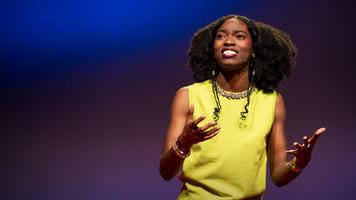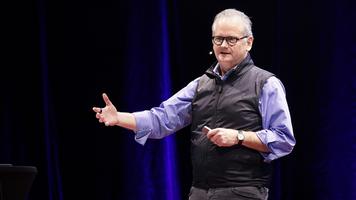Lei Cheng: Beyond the Talk: Lei Cheng in conversation with Elise Hu
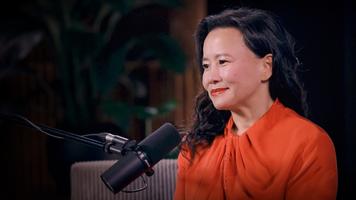
" I marvel at every little freedom that we have. Because for three years and two months, it was all brutally taken away from me," says journalist Lei Cheng. In 2020, Lei was wrongfully detained in China after being falsely accused of leaking state secrets. Several years after her release, she took the stage at TED2025 to share her perspective on...
Lei Cheng: What I learned about freedom in a secret Chinese prison
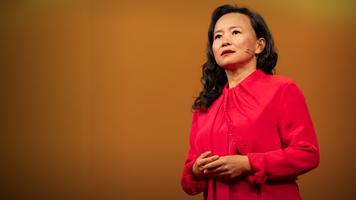
Accused of leaking state secrets, journalist Lei Cheng was imprisoned in China for more than three years, where she was detained in tight quarters and kept under constant supervision. “Freedom is wasted on the free,” she says, recounting how she and fellow inmates found joy in the smallest of moments: the smell of rain, a poem delivered in secre...
Kang Lee: Can you really tell if a kid is lying?
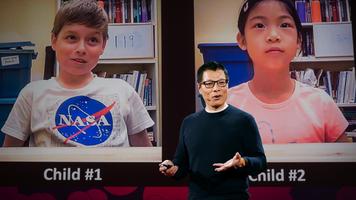
Are children poor liars? Do you think you can easily detect their lies? Developmental researcher Kang Lee studies what happens physiologically to children when they lie. They do it a lot, starting as young as two years old, and they're actually really good at it. Lee explains why we should celebrate when kids start to lie and presents new lie-de...
Lei Zhang: The powerful promise of Earth’s harshest places
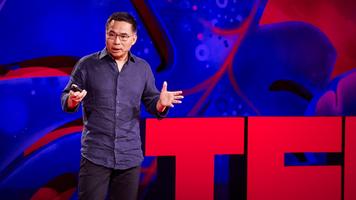
Clean energy visionary Lei Zhang loves the Gobi Desert — the most Mars-like place on Earth. Why? Because of the promise it holds to provide the free, abundant solar and wind energy to fuel humanity’s next leap forward. Sharing the story behind one of the world’s largest green hydrogen projects, Zhang shows how Earth’s harshest landscapes could u...
TED-Ed: How will AI change the world?
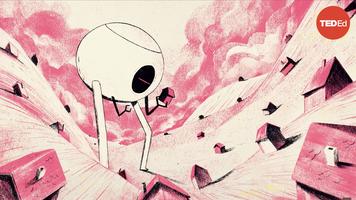
In the coming years, artificial intelligence is probably going to change your life— and likely the entire world. But people have a hard time agreeing on exactly how AI will affect our society. Can we build AI systems that help us fix the world? Or are we doomed to a robotic takeover? Explore the limitations of artificial intelligence and the pos...
GoodBye Monkey: S.A.N (Sentient Advocate of Nature)
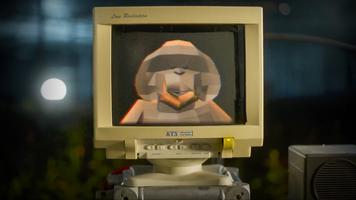
In a universe not unlike ours, a tech-environmentalist group claims to have created an AI that is the direct “voice of the earth,” a computer connected via electrodes to the mycelium network under an ancient forest named S.A.N (Sentient Advocate of Nature). The film imagines what nature thinks of human impact on the planet, as a renowned reporte...
Mfikeyi Makayi: The emerging science of finding critical metals
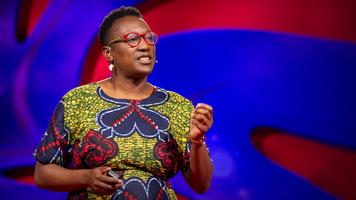
Your smartphone, computer and electric car all depend on one thing — critical minerals buried deep underground. But there’s a catch: the mining industry has gotten dramatically worse at discovering new deposits just when we need them most, says mining innovator Mfikeyi Makayi. She introduces new AI-powered technology that could fix this problem ...
Joy Buolamwini: How to protect your rights in the age of AI

"It's not too late to unmask AI and protect what's human in a world of machines," says researcher and artist Joy Buolamwini. Taking a stand for ethical AI, she explains how systems built on biased data can amplify inequalities, falsely accuse innocent people and reverse progress — and urges us to protect our biometric rights and fight for what s...
Divya Siddarth: How AI and democracy can fix each other
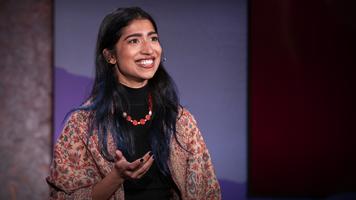
We don't have to sacrifice our freedom for the sake of technological progress, says social technologist Divya Siddarth. She shares how a group of people helped retrain one of the world's most powerful AI models on a constitution they wrote — and offers a vision of technology that aligns with the principles of democracy, rather than conflicting w...
Sam Gregory: When AI can fake reality, who can you trust?
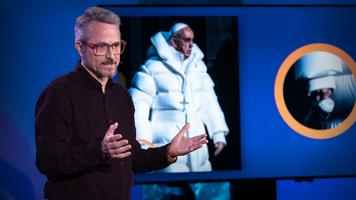
We're fast approaching a world where widespread, hyper-realistic deepfakes lead us to dismiss reality, says technologist and human rights advocate Sam Gregory. What happens to democracy when we can't trust what we see? Learn three key steps to protecting our ability to distinguish human from synthetic — and why fortifying our perception of truth...
Kevin Roose: The value of your humanity in an automated future
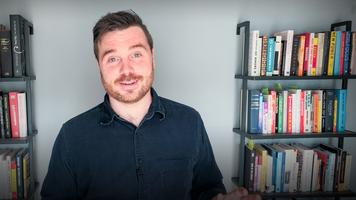
To futureproof your job against robots and AI, you should learn how to code, brush up on your math skills and crack open an engineering textbook, right? Wrong. In this surprisingly comforting talk, tech journalist Kevin Roose makes the case that rather than trying to compete with the machines, we should instead focus on what makes us uniquely hu...
Salome Agbaroji: "The Unprompted," a poem that AI will never understand
Max Tegmark: How to keep AI under control
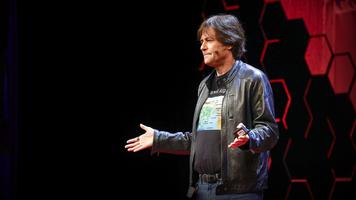
The current explosion of exciting commercial and open-source AI is likely to be followed, within a few years, by creepily superintelligent AI – which top researchers and experts fear could disempower or wipe out humanity. Scientist Max Tegmark describes an optimistic vision for how we can keep AI under control and ensure it's working for us, not...
Ruha Benjamin: Is technology our savior — or our slayer?
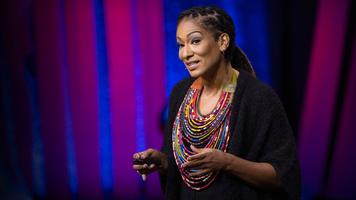
When it comes to technology, we're often presented with two contrasting visions of the future: one where technology fulfills all our desires, and another where it leads to chaos and conflict. Sociologist Ruha Benjamin is here with a more radical vision of the future — one where humanity isn't saved or slayed by technology, but rather uses it to ...
Liv Boeree: The dark side of competition in AI
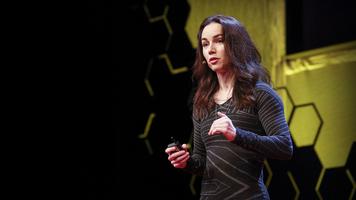
Competition is a core part of human nature, and it can drive us to extraordinary feats. But when it goes wrong, the results can be devastating. Poker champion and science communicator Liv Boeree introduces us to "Moloch's trap" — the dark force of game theory driving many of humanity's biggest social problems, which is now threatening to derail ...
Cedrik Neike: Time is running out on climate change. The metaverse could help
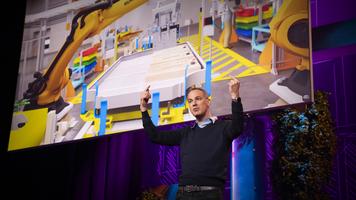
The metaverse could be our key to making real progress in the fight against climate change, says engineer Cedrik Neike. Examining how AI-powered modeling eliminates the trial and error of wasteful industries, he explores how this emerging technology is already improving everything from the gigafactories that churn out electric car batteries to t...
Phebe Vayanos: AI could increase equality — if we design it right
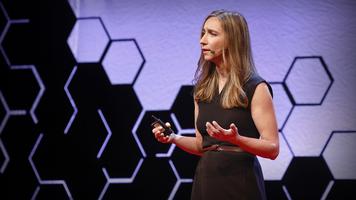
What if we designed AI explicitly to advance social equality? Systems engineer Phebe Vayanos shares her research into AI that empowers vulnerable communities, focusing on her work to improve the system for matching people experiencing homelessness in Los Angeles with the city’s extremely scarce housing resources. Learn about the hard moral trade...
Yohei Nakajima: How AI will help us connect with ourselves and each other
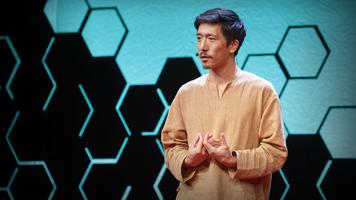
Builder Yohei Nakajima shares his experience designing BabyAGI, an open-source autonomous AI tool, exploring the evolution of identity, collective consciousness and the limitations of language in the age of artificial intelligence. "AI isn't just reshaping our tools, but our very understanding of ourselves," he says.
TED-Ed: The 4 greatest threats to the survival of humanity
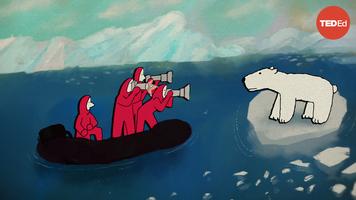
With the invention of the atomic bomb, humanity gained the power to destroy itself for the first time in our history. Since then, our risk of either extinction or the collapse of civilization has steadily increased. Just how likely are we to destroy ourselves? And what poses the greatest threat to our survival? Dig into four existential threats ...
Roy Bahat and Bryn Freedman: How do we find dignity at work?
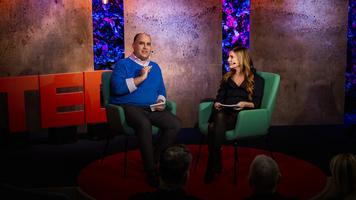
Roy Bahat was worried. His company invests in new technology like AI to make businesses more efficient -- but, he wondered, what was AI doing to the people whose jobs might change, go away or become less fulfilling? The question sent him on a two-year research odyssey to discover what motivates people, and why we work. In this conversation with ...
Susan Graham: A new way to restore Earth's biodiversity -- from the air
Heidi Boisvert: How I'm using biological data to tell better stories -- and spark social change
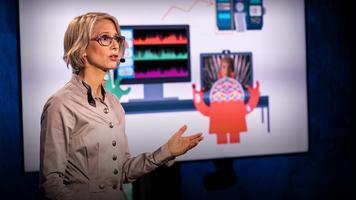
What kinds of stories move us to act? To answer this question, creative technologist Heidi Boisvert is measuring how people's brains and bodies unconsciously respond to different media. She shows how she's using this data to determine the specific narrative ingredients that inspire empathy and justice -- and spark large-scale social change.
Tanya Berger-Wolf: How your nature photos can help protect wild animals
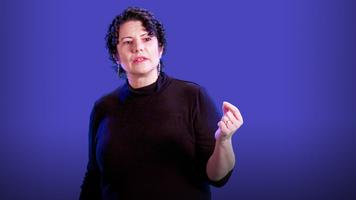
We're losing animal and plant species at such a swift, unprecedented rate that it's nearly impossible to keep up. Computational biologist Tanya Berger-Wolf demonstrates how harnessing the power of artificial intelligence and one of the internet's biggest resources -- public images and video -- supports the crucial collection of data to save thre...
Lawrence Lessig: How AI could hack democracy
Ali Kashani: A friendly, autonomous robot that delivers your food
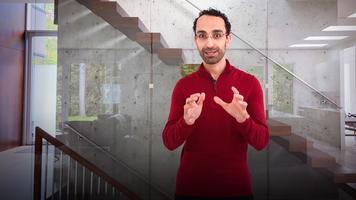
Meet the friendly robot that could deliver your next burrito. Ali Kashani introduces us to Postmates' autonomous delivery robot and explains how it could help reduce carbon emissions and free up valuable real estate in cities everywhere. Learn more about how it was specially designed to navigate complex social interactions on busy sidewalks to b...
Garry Kasparov: Don't fear intelligent machines. Work with them
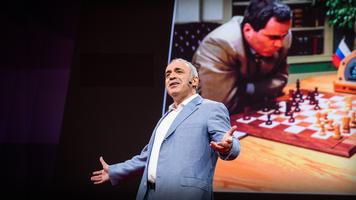
We must face our fears if we want to get the most out of technology -- and we must conquer those fears if we want to get the best out of humanity, says Garry Kasparov. One of the greatest chess players in history, Kasparov lost a memorable match to IBM supercomputer Deep Blue in 1997. Now he shares his vision for a future where intelligent machi...
Douglas Rushkoff: How to be "Team Human" in the digital future
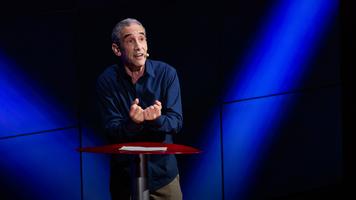
Humans are no longer valued for our creativity, says media theorist Douglas Rushkoff -- in a world dominated by digital technology, we're now just valued for our data. In a passionate talk, Rushkoff urges us to stop using technology to optimize people for the market and start using it to build a future centered on our pre-digital values of conne...
Sims Witherspoon: Can AI help solve the climate crisis?

"AI can be a transformational tool in our fight against climate change," says Sims Witherspoon, a leader at the AI research lab Google DeepMind. Using wind power as her case study, she explains how powerful neural networks can help us better predict Earth's changing ecosystems and accelerate the breakthrough science needed to create a carbon-fre...
Margaret Heffernan: The human skills we need in an unpredictable world
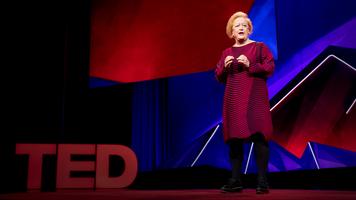
The more we rely on technology to make us efficient, the fewer skills we have to confront the unexpected, says writer and entrepreneur Margaret Heffernan. She shares why we need less tech and more messy human skills -- imagination, humility, bravery -- to solve problems in business, government and life in an unpredictable age. "We are brave enou...
Yuval Noah Harari: Why fascism is so tempting -- and how your data could power it
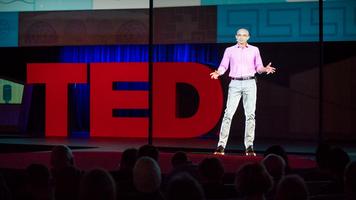
In a profound talk about technology and power, author and historian Yuval Noah Harari explains the important difference between fascism and nationalism -- and what the consolidation of our data means for the future of democracy. Appearing as a hologram live from Tel Aviv, Harari warns that the greatest danger that now faces liberal democracy is ...
